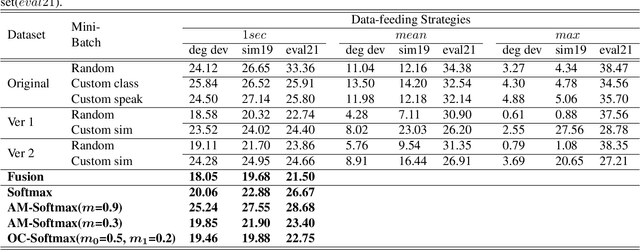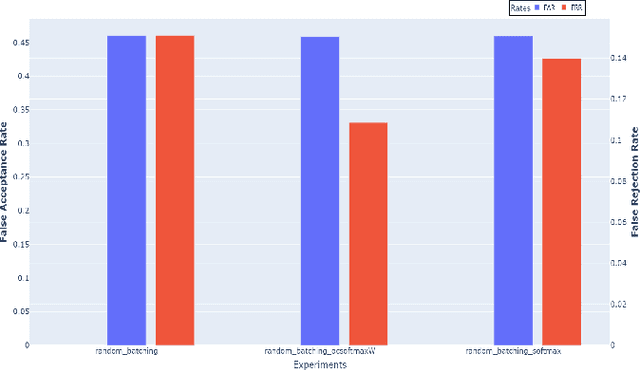Impact of Channel Variation on One-Class Learning for Spoof Detection
Paper and Code
Oct 09, 2021



The value of Spoofing detection in increasing the reliability of the ASV system is unparalleled. In reality, however, the performance of countermeasure systems (CMs) degrades significantly due to channel variation. Multi-conditional training(MCT) is a well-established technique to handle such scenarios. However, "which data-feeding strategy is optimal for MCT?" is not known in the case of spoof detection. In this paper, various codec simulations were used to modify ASVspoof 2019 dataset, and assessments were done using data-feeding and mini-batching strategies to help address this question. Our experiments aim to test the efficacy of the various margin-based losses for training Resnet based models with LFCC front-end feature extractor to correctly classify the spoofed and bonafide samples degraded using codec simulations. Contrastingly to most of the works that focus mainly on architectures, this study highlights the relevance of the deemed-of-low-importance process of data-feeding and mini-batching to raise awareness of the need to refine it for better performance.
 Add to Chrome
Add to Chrome Add to Firefox
Add to Firefox Add to Edge
Add to Edge